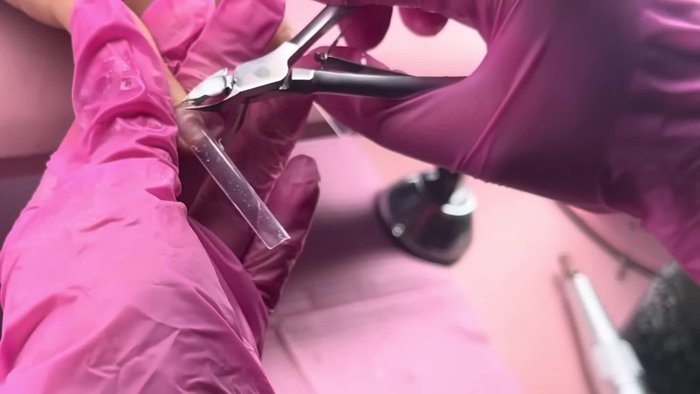Perfectly manicured claw nails are a statement of style, demanding precision and attention to detail. Whether you’re aiming for a fierce, edgy look or a more refined elegance, achieving that sharp, clean claw shape requires careful technique and the right tools. Forget those chipped, uneven edges and frustrating attempts at DIY shaping – the secret to flawlessly sculpted claws lies in understanding the process, from initial nail preparation to the final, satisfying buff. Many believe achieving this look is difficult, reserved only for professional salons, but we're here to prove otherwise.
This tutorial demystifies the art of claw nail shaping, providing a step-by-step guide to help you create perfectly crisp and clean results at home. We'll walk you through each stage, from selecting the ideal nail file to perfecting the curvature and achieving that coveted, flawlessly smooth finish. Get ready to transform your nails with our easy-to-follow instructions, and prepare to unleash your inner nail artist!
Preparation and Safety Guidelines
- 80 by 80 Marot nail file
- 240 grit sanding band
- Nail tip cutter with magnets
- 5-in-1 Pana drill bit
- Dust collector
- Nail tip glue
- Pre-shaped nail tips
- Cuticle oil
- Young Nails Swipe & Alcohol
- Nail scrub
- Matte top coat
- Base coat
- Acrylic nail brush (size 12)
- Acrylic
- Nail art supplies (gels, rhinestones, charms etc.)
- Always use sharp, clean clippers or scissors to avoid splitting or tearing the nail. Dull tools can cause damage and increase the risk of infection.
- Never cut into the quick (the pink part of the nail), as this is highly sensitive and will cause bleeding and pain. Cut only the white part of the nail.
- If you experience any bleeding, apply pressure with a clean cloth and clean the area thoroughly with antiseptic to prevent infection. If bleeding persists or you notice signs of infection, seek professional medical advice.
Step-by-Step Instructions
Nail Tip Application and Prep
- Apply pre-shaped nail tips, ensuring they extend from sidewall to sidewall.
- Blend nail tips using a 240 grit sanding band.


Nail Tip Application and Prep Initial Shaping and Length Adjustment
- Cut nails to desired length using a nail tip cutter with magnets for precision.
- Shape the top of the nail tips using an 80 by 80 Marot nail file to create a subtle moon curve.


Initial Shaping and Length Adjustment Hand Filing and Shaping
- File the bottom of the nail first, then the sides, using the 80 by 80 file parallel to the nail. File the tip at an angle for the moon curve. Smooth the surface with the file at a tilted angle, avoiding a boxy look.

Hand Filing and Shaping E-File Refinement and Cuticle Sealing
- Use the 5-in-1 Pana drill bit to further refine the shape, paying close attention to blending the acrylic seamlessly with the natural nail at the cuticle for superior retention.

E-File Refinement and Cuticle Sealing Smoothing and Cleaning
- Buff the nails with cuticle oil to remove scratches and smooth the surface.
- Clean the nails with Young Nails Swipe & Alcohol and a nail scrub. Alternatively, have the client wash their hands.


Smoothing and Cleaning Final Prep and Top Coat
- Apply a matte top coat or base coat before nail art.

Final Prep and Top Coat Nail Art Application
- Apply nail art.

Nail Art Application
Read more: Safe Acrylic Nail Removal at Home: No Drill Needed!
Tips
- Buy pre-shaped nail tips to save time.
- Season your files, especially 80 by 80 grit, for easier filing.
- Maintain a room temperature of 72°F for optimal application.
- Perfect your application before focusing on shaping.
- Create a well-defined apex to protect the natural nail and provide strength.










